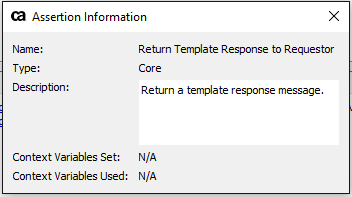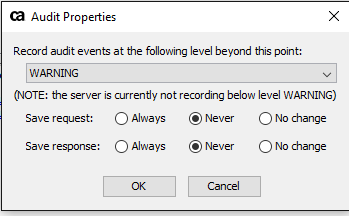If you right-click an assertion in the Policy Manager and select 'View Info', you will see any Context Variables associated with an assertion. Here is what it shows for the Return Template Response assertion:

As you can see, there are no Context Variables directly associated with that assertion.
I'm not totally sure if that's what you are asking for here though. Are you looking to see the actual complete response that will go back to the user of the API? You can add an 'Audit Messages in Policy' assertion and set 'Save response' to 'Always' to have it show up in the Audit log.
